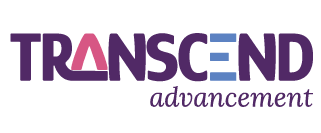Grant Writing 101
Crafting Proposals That Win Funding
For many nonprofits, grants provide critical funding that helps sustain and grow programs. But securing grants isn’t just about asking for money—it’s about crafting compelling proposals that resonate with funders and demonstrate impact. If you’re new to grant writing or looking to improve your success rate, here’s how to create proposals that get noticed.
1. Start with Thorough Research
Before you put pen to paper, take time to identify the right grant opportunities. Not all grants are a good fit, and applying for the wrong ones can waste time and resources. Look for funders whose priorities align with your mission and track record. Review their past grantees, funding amounts, and application requirements to ensure your proposal stands a chance.
2. Tell a Powerful Story
Funders receive countless proposals, so yours needs to stand out. Instead of just presenting statistics and facts, weave a compelling narrative.
What problem does your nonprofit address?
Why does it matter?
How will funding help solve the issue?
Use real stories from those impacted by your work to bring your proposal to life.
3. Clearly Outline Your Objectives
Grant funders want to invest in organizations that deliver measurable impact. Instead of vague goals like “help more students succeed,” use specific, actionable objectives like “increase reading comprehension scores by 15% among 100 underserved students in one year.” Demonstrating clear, measurable outcomes strengthens your credibility.
4. Develop a Realistic Budget
Your budget tells funders how their money will be used. Be transparent and detailed, ensuring all costs align with the grant’s guidelines. If applicable, show how your organization is leveraging other funding sources to maximize impact.
5. Follow Instructions to the Letter
Many grant applications are rejected simply because they don’t follow guidelines. Pay close attention to word counts, required attachments, and formatting. If a funder asks for a one-page summary, don’t submit a five-page proposal.
6. Proofread and Get a Second Opinion
A polished proposal reflects professionalism and attention to detail. Before submission, have a colleague or consultant review your proposal for clarity, errors, and persuasiveness.
Ready to Secure More Grant Funding?
Successful grant writing takes strategy, skill, and time—but you don’t have to do it alone. TRANSCEND Advancement offers expert grant writing services, from research to proposal development, ensuring your applications stand out in a crowded field. Let’s craft compelling proposals that win funding and fuel your mission.
